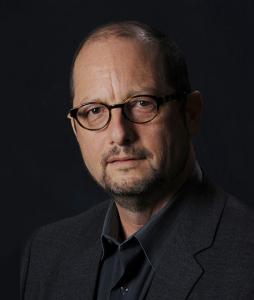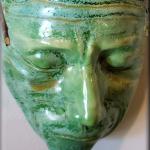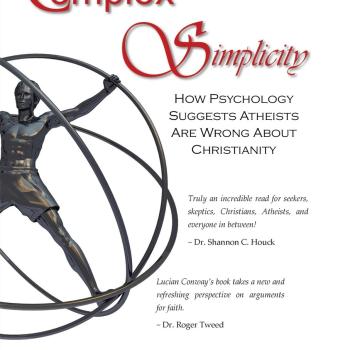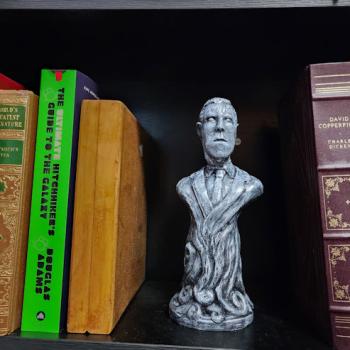
Bart Ehrman is arguably the best-known and best-respected Bible scholar of the modern era. He is also very contrary to Christian belief. While Christians and skeptics alike are fond of citing his work, Ehrman lands solidly in the camp of skeptics, and has published a number of books challenging anything resembling truthfulness or soundness of scripture. Among Ehrman’s claims are that scripture has become very corrupted over the years of transmission, and that Jesus was a itinerate speaker who was gradually deified over the years following his death.
Given that Ehrman has made a career out of attacking Christianity in general and the Bible specifically, it may surprise some to learn that he was once a devout Christian – and a fundamentalist to boot. Says Ehrman:
“For most of my life I was a devout Christian, believing in God, trusting in Christ for salvation, knowing that God was actively involved in this world. During my young adulthood, I was an evangelical, with a firm belief in the Bible as the inspired and inerrant word of God”
Ehrman became a Christian early in life – around the age of 15. So passionate was he in his faith, that he attended the Moody Bible Institute after high school. Following his time at Moody, Ehrman attended Wheaton College where he studied under the preeminent scholar Gerald Hawthorne and learned to read Greek very fluently.
After receiving degrees from various institutes, Ehrman pursued a doctorate in theology at Princeton. Up to this point in his biography, Ehrman remained a dedicated and very conservative Christian. As such, it was quite a struggle for him when he encountered an apparent contradiction in scripture. The contradiction involved the Gospel of Mark saying that Abiathar was the high priest, which contradicted records contemporary to the time.
As a diligent and conservative scholar, Ehrman labored to reconcile this error in showing that the scripture wasn’t wrong – just misunderstood.
As Ehrman took this difficulty to his professor, the professor responded in a way that shook the young scholar to the core. Said the professor: “Maybe Mark just made a mistake.”
As an inerrantist, this was a dawning light, as Ehrman was forced to the position that the scriptures might be wrong about things, undermining any trust one might place in them.
Despite the shock this was to Ehrman’s system, it was not the moment of his deconversion. Ehrman explains:
“It was not a matter of my being a fundamentalist, then finding a contradiction in the Bible and throwing up my hands in despair and saying “Oh no! There *is* no God!!”
“It didn’t happen like that at all. I didn’t go from being a fundamentalist to being an agnostic. It was a many-year struggle in which I went from a rabid fundamentalist to becoming a slightly left of center evangelical to being for many years a liberal Christian active in the church and thinking as deeply as I could about the theological views that had long been established in my tradition.”
Ehrman remained at the fringes of Christian belief for 20 years after this crisis. During that 20 years, Ehrman continued to teach and study theology and philosophy. He reckoned that he was becoming immensely sophisticated in his capacity to reason about God, theology, the Bible and faith. But there was one matter about which his reasoning became more and more muddied: the problem of suffering.
In his wide reading on the subject and his sophistication of scholarship, Ehrman believed he had found the answer:
“I came to believe that God himself is deeply concerned with suffering and intimately involved with it. The Christian message, for me, at the time, was that Jesus Christ is the revelation of God to us humans, and that in Jesus we can see how God deals with the world and relates to it. He relates to it, I thought, not by conquering it but by suffering for it. Jesus was not set on a throne in Jerusalem to rule over the Kingdom of God. He was crucified by the Romans, suffering a painful, excruciating, and humiliating death for us. What is God like? He is a God who suffers. The way he deals with suffering is by suffering both for us and alongside us.”
This is a view with which Ehrman is still impressed, even in his agnosticism. However, it was not enough to keep him from straying from Christianity altogether. Deep consideration of the massive amount of suffering and horror in the world chipped away at Ehrman for years. Eventually he realized he could no longer believe it. Much like his struggle to reconcile biblical errors with inerrancy, Ehrman realized he was simply creating justifications when, in fact, he could not buy in to the idea that God was an active, concerned, prayer-answering, and reconciling being. The universe did not support that view in all its cold, uncaring ruthlessness.
Ehrman details his journey to this point in his book, God’s Problem: How the Bible Fails to Answer Our Most Important Question–Why We Suffer.
Having invested his entire life to biblical scholarship, however, Ehrman continues to make this the trajectory of his career; only now, laboring on the other side of the fence to show how scripture – and indeed, Christianity, cannot be trusted.
Despite this, Ehrman remains a solid tool in the belt of Evangelicals who use his hostile testimony as support when combating more extreme views such as Jesus Mythicism. Essentially, Christians are happy to say that, here is a man who is immaculately critical of the Bible, yet still feels that the evidence shows that Jesus was real. Or in other words, “Atheists, this man is in your camp, and still confirms that Jesus was a historical person.”


















